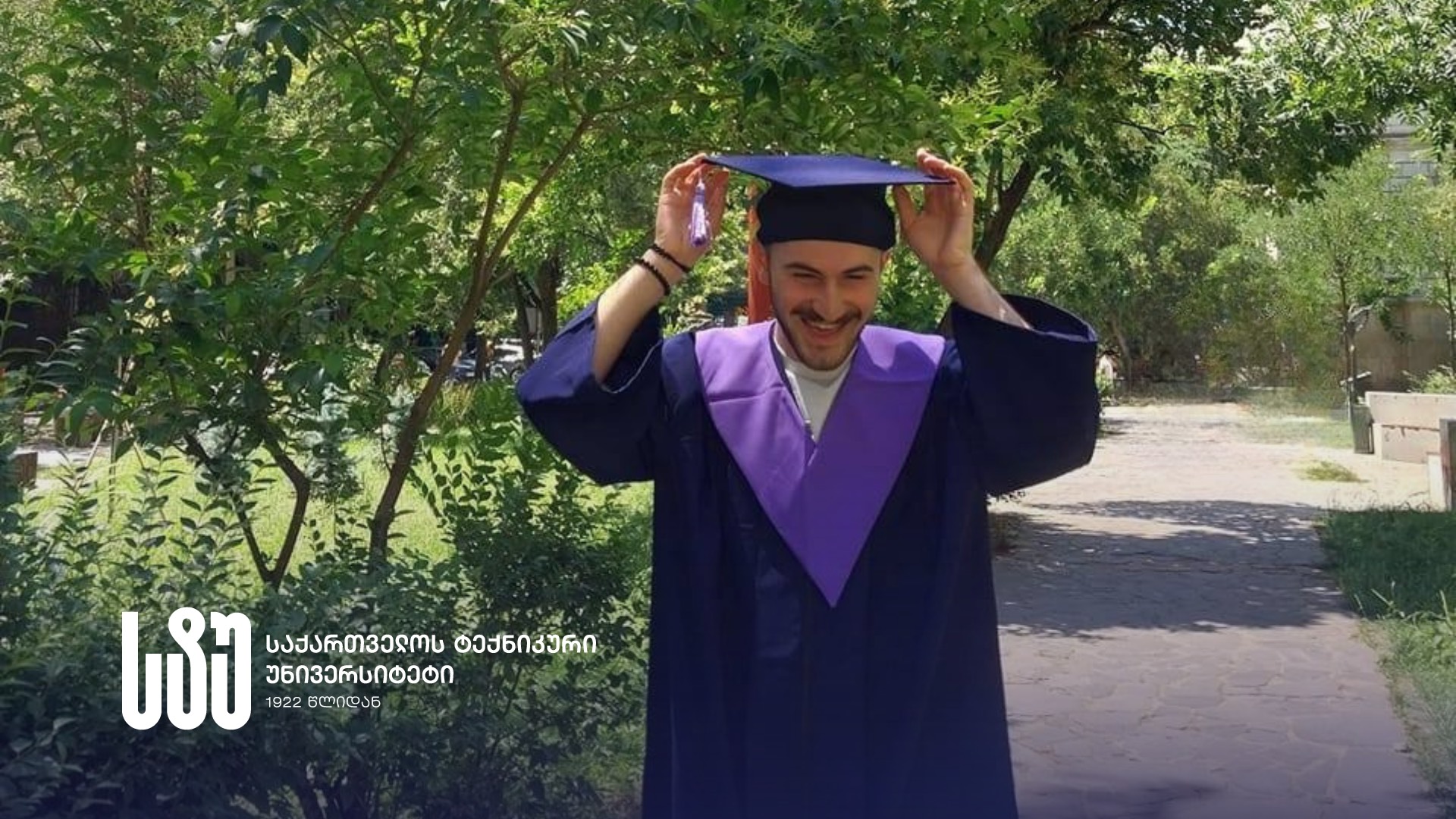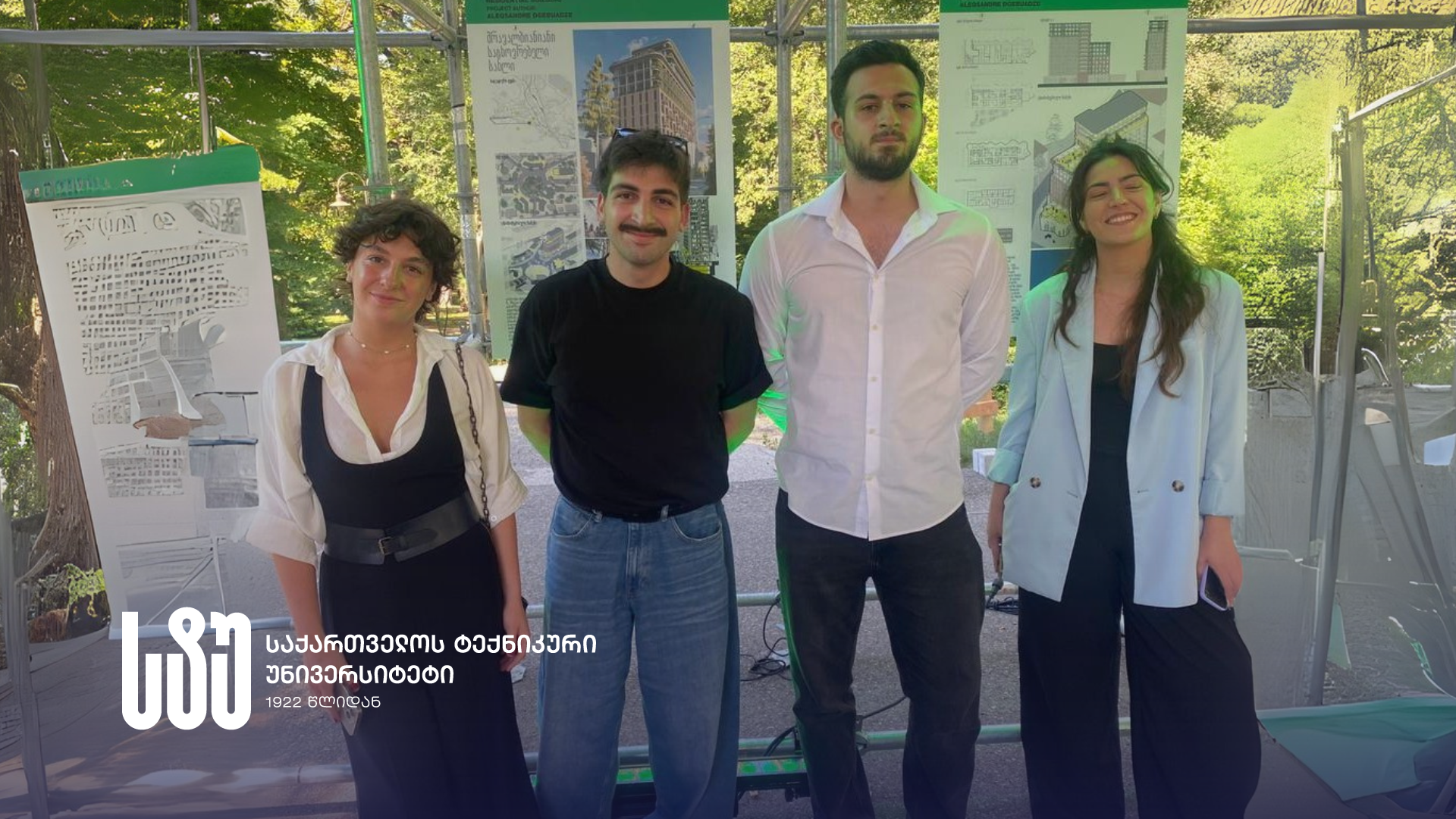Project PRINTeL - TOT Training Courses on Innovation Pedagogy at Catholic University of Leuven
09-12-2018 On November 11-17, GTU Assistant Professors Tamar Kupreishvili (Faculty of Law and International Relations; Department of Political sciences and International Relations) and Darejan Tsutskiridze (Faculty of Engineering Economic, Media Technology and Social Sciences; Department of Archeology and History) had been participating in TOT training course related to innovative pedagogy within EU funded Erasmus+ project PRINTeL. The TOT training course was organized at project European partner Catholic University of Leuven - KU Leuven (Belgium).
On November 11-17, GTU Assistant Professors Tamar Kupreishvili (Faculty of Law and International Relations; Department of Political sciences and International Relations) and Darejan Tsutskiridze (Faculty of Engineering Economic, Media Technology and Social Sciences; Department of Archeology and History) had been participating in TOT training course related to innovative pedagogy within EU funded Erasmus+ project PRINTeL. The TOT training course was organized at project European partner Catholic University of Leuven - KU Leuven (Belgium). Project trainer Prof. Wim Van Petegem (Policy Coordinator Learning Technologies at KU Leuven) and Ms. Hilde Lauwereys (International Liaisons Officer, Faculty of Engineering Technology) welcomed training participants fr om Georgia, Republic of Armenia and Belarus and represented KU Leuven and the University traditions. The introductory part of the training included the introduction and interaction of training participants, carried out by using the specific techniques of Active Learning.
Project trainer Prof. Wim Van Petegem (Policy Coordinator Learning Technologies at KU Leuven) and Ms. Hilde Lauwereys (International Liaisons Officer, Faculty of Engineering Technology) welcomed training participants fr om Georgia, Republic of Armenia and Belarus and represented KU Leuven and the University traditions. The introductory part of the training included the introduction and interaction of training participants, carried out by using the specific techniques of Active Learning. After the introductory part, the first day was fully devoted to the importance of Active Learning. Training participants received the answers to the basic questions, such as “what is an Active Learning?”, and how it should be implemented. Consequently, Prof. Wim Van Petegem introduced the definitions, forms, tools of its use and all the basic components that provide successful Active Learning.
After the introductory part, the first day was fully devoted to the importance of Active Learning. Training participants received the answers to the basic questions, such as “what is an Active Learning?”, and how it should be implemented. Consequently, Prof. Wim Van Petegem introduced the definitions, forms, tools of its use and all the basic components that provide successful Active Learning. At the end of the first day, the participants created the concept map and presented it to each another. It should be noted, that the teaching process at KU Leuven (one of the oldest Universities) is based on the contemporary methods and techniques of active teaching and it is regarded as one of the main mechanisms for the future-oriented education.
At the end of the first day, the participants created the concept map and presented it to each another. It should be noted, that the teaching process at KU Leuven (one of the oldest Universities) is based on the contemporary methods and techniques of active teaching and it is regarded as one of the main mechanisms for the future-oriented education.One of the main goals of the second-day training was the acquaintance and study of TPACK and ADDIE models. Participants were offered theoretical material in the form of presentation and practical exercises for the purpose of their use. Participants formed the groups and each group performed so-called TPACK game and gave the presentation of obtained results.
At the same day, the training participants visited LIMEL – the building of media technologies equipped with ultramodern technologies, wh ere the Professors and students are encouraged to use the technical resources for achieving their academic goals. The host University representatives talked about the importance of the use of technologies in the learning process, about the necessity and the results achieved, as well as the creation of video product and the material and human resources needed for it.
 Afterwards the participants received comprehensive answers to their questions. Then they got acquainted with recording studio, local infrastructure with the explanations about its purposes, functional mechanisms, and etc.
Afterwards the participants received comprehensive answers to their questions. Then they got acquainted with recording studio, local infrastructure with the explanations about its purposes, functional mechanisms, and etc. On the next day, ADDIE model components were discussed in detail, focusing on students’ characteristics. Also, it was very interesting for training participants that a practical assignment was designed to create a “Learning Scenario” by using TPACK and ADDIE models. Each group defined the topic, the pedagogic approach, the specific technique of Active Learning and presented it as the Presentation, with trainer and audience active involvement.
On the next day, ADDIE model components were discussed in detail, focusing on students’ characteristics. Also, it was very interesting for training participants that a practical assignment was designed to create a “Learning Scenario” by using TPACK and ADDIE models. Each group defined the topic, the pedagogic approach, the specific technique of Active Learning and presented it as the Presentation, with trainer and audience active involvement. The participants of the training were given specific theoretical material, which was discussed in detail on the fourth day taking into consideration the specific characteristics of the TPACK and ADDIE models. The process was conducted by using the Active Learning methods. At the same day, Prof. Wim Van Petegem introduced the classroom response system to the training participants, with the special focus on “Mentimeter”. To better understand his work and results, the trainer gave the presentation of the "Mentimeter" involving the participants, and the results were discussed in detail in an interactive method. On the same day, the training participants started active preparation for the final presentation. They needed to create a syllabus based on Active Learning components.
The participants of the training were given specific theoretical material, which was discussed in detail on the fourth day taking into consideration the specific characteristics of the TPACK and ADDIE models. The process was conducted by using the Active Learning methods. At the same day, Prof. Wim Van Petegem introduced the classroom response system to the training participants, with the special focus on “Mentimeter”. To better understand his work and results, the trainer gave the presentation of the "Mentimeter" involving the participants, and the results were discussed in detail in an interactive method. On the same day, the training participants started active preparation for the final presentation. They needed to create a syllabus based on Active Learning components.It is remarkable that the training participants, grouped in separate groups, had been working hard on the preparatory project and then successfully presented it on the final day. The presentation process itself was based on the active learning methodology. The presentations presented in the small groups, based on feedback received or positive assessments, had made important recommendations for future activities. Prof. Petegem with active involvement of the whole group conducted their final review and analysis by using "Mentimeter".
 Finally, the trainer and TOT training participants assessed and summarized the results of the five-day work. The participants thanked the Belgian Professor for his efforts and hard work. The participants were awarded with appropriate Certificates "Active Learning with a special focus on Technology Enhanced Collaborative Learning". Each participant earned 2 ECTS.
Finally, the trainer and TOT training participants assessed and summarized the results of the five-day work. The participants thanked the Belgian Professor for his efforts and hard work. The participants were awarded with appropriate Certificates "Active Learning with a special focus on Technology Enhanced Collaborative Learning". Each participant earned 2 ECTS.It is noteworthy that during intensive training, every day each participant had to write two main conclusions from the day-to-day material and one main question that has passed during the day.
TOT training course hard-working schedule included cultural events as well.
It should be noted that GTU Professors will share their knowledge and experience gained from TOT training and train their Georgian colleagues through the training organized at the Technical University and aimed at promoting the innovative pedagogic elements in GTU.
 For further information on the Project PRINTeL (Project PRINTel – “Change in Classroom: Promoting Innovative Teaching and Learning to Enhance Student Learning Experience in Eastern Partnership Countries”), visit the official website of the Project PRINTel and the website of GTU International Relations and Standards Office.
For further information on the Project PRINTeL (Project PRINTel – “Change in Classroom: Promoting Innovative Teaching and Learning to Enhance Student Learning Experience in Eastern Partnership Countries”), visit the official website of the Project PRINTel and the website of GTU International Relations and Standards Office.
